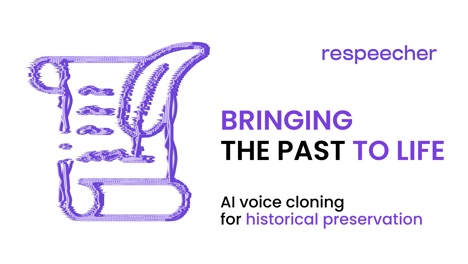From Translation to Transformation: How to Create an Effective Content Localization Strategy

Today's world is highly interconnected, so businesses increasingly recognize the importance of reaching international audiences through effective global marketing strategies. And simple translation is no longer enough. We are moving towards content localization—a multifaceted process transcending mere translation and deepening cultural nuances.
Literal translations and dubbing often fail to resonate with local audiences, as they overlook cultural sensitivities, linguistic nuances, and contextual relevance. Meanwhile, content localization is a transformative approach that recognizes the need for adaptation and customization to engage diverse demographics effectively. It involves linguistic accuracy and cultural adaptation, ensuring that the message remains authentic and resonates with the target audience on a deeper level. Still, content localization requires strategic planning, considering cultural norms, values, preferences, and market trends.
What is Content Localization?
Translation primarily involves converting text from one language to another and voice acting while attempting to maintain the original meaning. It focuses on linguistic accuracy but often overlooks cultural nuances and context. On the other hand, localization and AI dubbing are a more comprehensive process that goes beyond linguistic conversion. It involves adapting content to specific markets by considering cultural sensitivities, idiomatic expressions, and local preferences. Unlike translation, which aims for literal equivalence, localization aims for cultural and contextual appropriateness.
Content localization is critical for businesses seeking to engage diverse audiences and maintain relevance in the global market for several reasons:
- Overcoming Language Barriers: By translating content into local languages, businesses can effectively communicate with non-English speaking audiences, expanding their reach and accessibility.
- Resonating with Cultural Nuances: Cultural differences can significantly impact consumer behavior and preferences. Content localization ensures that messaging aligns with local customs, beliefs, and values, fostering a deeper connection with the audience.
- Establishing Trust and Credibility: Consumers are more likely to trust brands that speak their language and understand their culture. Content localization demonstrates a commitment to understanding and respecting local communities, thus enhancing brand credibility and loyalty.
How to Develop a Localization Strategy
Crafting a tailored localization strategy is essential for businesses aiming to engage diverse audiences and expand their global presence effectively. By aligning localization efforts with broader marketing objectives and incorporating in-depth market research and cultural understanding, businesses can create resonant localized content that resonates with target audiences.
Conduct In-Depth Market Research
Identify target markets and understand their cultural, linguistic, and behavioral nuances. Analyze competitors' localized content strategies to identify gaps and opportunities. Utilize market research tools, surveys, and focus groups to gather insights into local preferences and consumer behavior.
Perform Audience Analysis
Segment target audiences based on demographics, psychographics, and localization preferences. Identify key cultural touchpoints and values that resonate with each audience segment. Understand the preferred communication channels and content formats of each target demographic.
Cultural Understanding and Engagement:
Collaborate with localization professionals who possess native cultural expertise. Engage in cultural immersion experiences, such as local events or workshops, to gain firsthand insights into target markets. Connect with local influencers or community leaders to better understand cultural nuances and consumer preferences.
Set Clear, Measurable Goals
Define specific localization objectives, such as increasing brand awareness, driving engagement, or boosting sales in target markets. Establish key performance indicators (KPIs) to measure the effectiveness of localization efforts, such as website traffic, conversion rates, or social media engagement. Ensure that localization goals are aligned with broader business objectives, such as revenue growth or market expansion.
Remember that cultural context shapes consumer perceptions and purchasing decisions. Failing to understand cultural nuances can lead to messaging that is perceived as tone-deaf or insensitive. Comprehensive research enables businesses to tailor content that resonates with local audiences, fostering trust and credibility and improving local market engagement.
The Role of AI Voice Technology in Localization
Today, AI-powered technologies are revolutionizing localization, particularly voice cloning through text-to-speech (TTS) and speech-to-speech (STS). Text-to-speech technology converts written text into spoken words, with natural-sounding AI voices that mimic human speech patterns. By utilizing TTS, businesses can efficiently produce audio content in multiple languages, eliminating the need for manual recording by voice actors.
AI voice cloning technology takes text to speech a step further by enabling the replication of specific voices, including those of brand ambassadors or celebrities. With voice cloning, businesses can maintain consistency in brand voice across different languages and channels, enhancing brand recognition and recall. Voice cloning also streamlines the localization process by providing a scalable solution for generating personalized audio content.
Benefits of AI-Powered Localization Tools
Efficiency in Content Production
AI-powered localization tools significantly reduce the time and resources required to produce multilingual content, enabling content creators to scale their efforts without compromising quality. These tools automate the translation and localization process, allowing for rapid turnaround times and seamless integration with existing content workflows.
Retention of Emotional Impact and Brand Voice
TTS and voice cloning software can convey emotion and personality in spoken content, ensuring that localized content retains the original's emotional impact and brand voice. By preserving the nuances of tone and expression, AI-powered tools help maintain consistency in messaging across different language versions, fostering greater engagement and connection with audiences.
Benefits for Content Producers
Content producers, such as podcasters, can leverage AI-powered localization tools to reach international audiences with minimal effort, expanding their listener base and monetization opportunities. These tools enable content producers to focus on creating compelling content rather than being bogged down by translation and voiceover complexities.
Benefits for Marketing Teams
Marketing teams can use AI-powered localization tools to quickly and cost-effectively adapt marketing materials for global markets, such as advertisements and promotional videos. By delivering localized content that resonates with target audiences, marketing teams can drive brand awareness and customer engagement worldwide.
Case Studies
1. Respeecher and Rephrase.AI Collaborate with Mondelēz International, Ogilvy, Wavemaker for Cadbury Ad Campaign
Objective: To create a personalized ad campaign for the Indian market during the Diwali festival that supports local stores and retailers.
The process:
- Utilized AI and machine learning to create a digital avatar and clone the voice of Shahrukh Khan, a popular Bollywood actor.
- Integrated YouTube Pin Code Targeting, YouTube Director Mix, and Google Maps API to tag local stores and geo-target ads featuring custom shop names.
- Developed thousands of customized ads with Shahrukh Khan's AI generated voice representing each local store.
Outcome:
Gold award at the Clio Awards 2022 for innovation and creative excellence in advertising. Increased support for local Indian sellers, attracting more shoppers to small stores affected by the pandemic. Revolutionized advertising with the widespread use of customized messages at a fraction of the cost and production time.
2. Reviving the Hungarian Voice of Darth Vader
Objective: Restore the original voice of Darth Vader for the Obi-Wan Kenobi series and recreate the voice of Hungarian actor Lajos Kránitz, who dubbed Darth Vader for the Hungarian market.
The process:
- Leveraged Respeecher's voice cloning technology to recreate James Earl Jones's voice for Darth Vader and Lajos Kránitz's voice for the Hungarian market.
- Collaborated with Kránitz's sons to obtain legal permission and archived speech records for voice cloning.
- Hired a professional voice actor to re-record all dialogues for the Hungarian version of the series.
Outcome:
Respeecher restored Darth Vader's original voice for the Disney+ series, maintaining the character's iconic presence. The company also resurrected Lajos Kránitz's voice, enabling Hungarian fans to experience their original Darth Vader again. This demonstrated the capabilities of voice cloning technology to preserve and revive iconic voices, even amidst challenging circumstances such as a full-scale war.
These case studies showcase how AI-powered technologies, such as AI voice cloning and text-to-speech, transform content localization by enhancing efficiency, preserving emotional impact, and reviving iconic voices for global audiences.
Conclusion
Well-executed content localization strategies can transform global marketing efforts by bridging linguistic and cultural barriers while preserving the authenticity and emotional resonance of the original content. By striking a balance between technology and AI ethics, businesses can harness the full potential of localization tools to engage diverse audiences while respecting their cultural sensitivities and values.
Through the innovative use of AI-powered technologies like text-to-speech and speech-to-speech voice cloning, companies can efficiently produce multilingual content that retains the emotional impact and brand voice across different markets. These tools streamline the localization process and enable brands to reach global audiences with personalized and culturally relevant messaging.
If you are considering content localization, consider Respeecher Voice Marketplace as a valuable tool for small-scale projects or B2B services for larger endeavors. Respeecher offers tailored solutions to meet the unique needs of businesses seeking to expand their global reach while maintaining cultural authenticity.
FAQ
Translation focuses on converting text from one language to another, while localization goes further by adapting content to fit cultural and linguistic nuances, including contextual relevance and market preferences. It involves more than just linguistic accuracy, ensuring the content resonates with local audiences.
AI voice cloning enhances content localization by replicating specific voices, including brand ambassadors or celebrities. It helps maintain a consistent brand voice across different languages, improving global marketing and audience engagement by delivering localized content in natural-sounding voices.
Text-to-speech (TTS) technology allows businesses to convert written content into AI-powered voices in multiple languages quickly, enhancing global marketing. It ensures emotional impact and brand consistency, reducing time and cost in creating multilingual content for diverse audiences.
Respeecher’s AI-powered tools like text-to-speech (TTS) and speech-to-speech (STS) allow businesses to produce multilingual content efficiently. With AI voice cloning, Respeecher helps maintain cultural adaptation, enabling global marketing efforts by generating natural-sounding voices in various languages.
Using AI-powered tools in localization must adhere to ethical AI use, ensuring cultural sensitivities and local preferences are respected. Businesses should avoid exploiting or misrepresenting cultures, ensuring that AI-generated content remains authentic and aligns with local norms and values.
Glossary
Content localization
Text-to-speech (TTS)
Speech-to-speech (STS)
AI voice cloning
Localization strategy

- voice cloning technology,
- dubbing
- AI voice
- voice cloning software
- AI voice generator
- AI voice cloning
- AI Ethics
- AI generated voice
- speech to speech
- AI dubbing
- AI voice over
- AI voiceover
- voice over
- voiceover generator
- Respeecher for Business
- dubbing and localization
- text-to-speech technology
- local market engagement
- ethics in localization
- content localization
- localization strategy
- content localization strategy
- multilingual content





